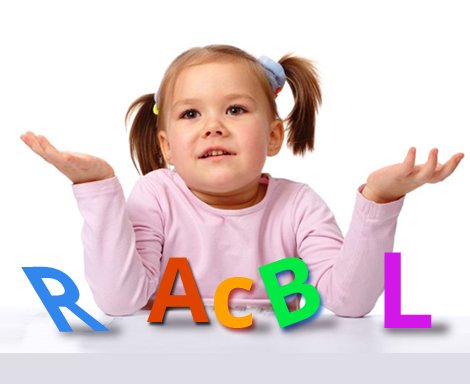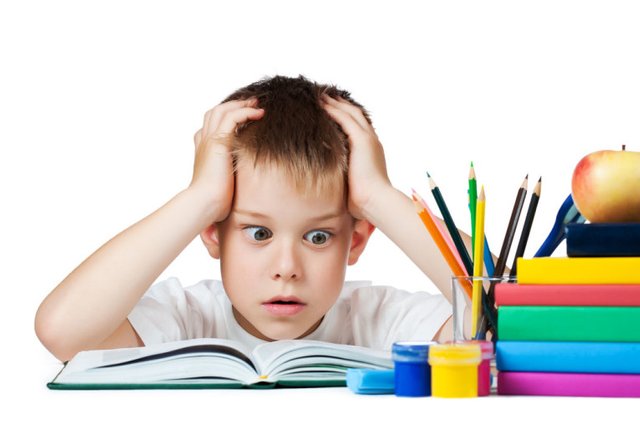Learning Disabilities in Children
Learning disorders in children are problems that affect the brain's ability to receive, process, analyze and store information. These learning problems can make it difficult for a student to learn as quickly as someone who is not affected by one of these disorders. However, a disorder or learning problem is not related to a person's intelligence or motivation, in fact most children with them are as intelligent as others.
There are many types of learning disorders and most students are affected by several of them. Some types may interfere with concentration or attention, while others make reading, writing, or solving math problems more difficult. Therefore, children and adults with learning disorders can succeed in the academic and in the workplace. For example, successful people like Alexander Graham Bell, Walt Disney or Winston Churchill had learning disorders.
If you think your child may have a learning disorder and may need special help, it is recommended that you seek a professional child or educational psychologist, pedagogue or educational psychologist, the sooner the problem is treated, the sooner your child will reach his full potential.
- Problems in pronouncing words.
- Problems finding the right word.
- Problems learning the alphabet, numbers, colors, shapes and days of the week.
- Difficulties following directions or learning routines.
- Difficulties handling pencils, markers or coloring.
- Problems with buttons, zippers, snaps, learning to tie shoes.
- Inability to combine sounds to form words.
- Problems learning the connection between letters and sounds.
- Confusion basic words when reading.
- Problems in learning basic mathematical concepts.
- Difficulty in telling the time or remembering sequences.
- Consistent mistakes in spelling words and frequent mistakes when reading.
- Slowness in learning new skills.
- Problems with open questions.
- Difficulties with writing comprehension or mathematical skills.
- Problems reading aloud.
- Pronounce the same word differently in the same document.
- Problems to follow the debates in class and express thoughts aloud.
- Writing with the poor hand.
- Scarce organizational skills in home and school.
If you recognize a learning disorder when your child is young, you can intervene in time to reverse the problem and prevent it from developing. If you think there is a problem, it is best to make an evaluation with a professional.

source
Genetic influences: In some disorders, parents and siblings of people who suffer them are more likely to manifest them than relatives of people without difficulties. By studying identical twins, if one is diagnosed with reading disorder, there is a 100% chance that the other twin will also receive it. However, learning problems are influenced by both genetic and psychosocial factors.
Brain development: Some experts believe that learning disorders can be due to problems with brain development before or after death. Problems such as low birth weight, lack of oxygen or premature birth can cause learning disorders.
Environmental factors: Babies and young children are more susceptible to environmental toxins, for example, it is believed that lead can contribute to learning difficulties. Poor nutrition in the first years of life can also contribute to learning problems in the future.
Learn about your child's learning disorder: Find information about your child's specific learning disorder, find out how the problem affects learning, and what skills are involved. If you understand this, it will be easier for you to give help and seek treatments.
Research treatments, services and new theories: there are different treatments and some may have better results in your child. On the other hand, every year many investigations are carried out, especially those that are written in English.
Consider the treatment at home: much of the child's development is due to the education he receives at home. Even if there are no services at school or other institutions, the child can receive treatment at home.
Foster strengths: your child may have difficulties in areas, although other areas will probably be better. Pay attention to your son's interests and passions and try to encourage them.

These children need special kind of attention and we must be more patient in teaching them.
You are absolutely right. I have a Children just like this type. He never want to read or write. He has no interest. He is 4 and half years old. He is not attentive. I am worried about him. Thanks for this important information about this problems. @frankcalvo
It is so important to be aware of the various needs of our students. Especially students with learning disabilities. Many of the strategies used are just good teaching practices for all students but these specific students require it, even more, to be able to access the content and be successful.
This type of subjects attracts my attention because many times they are not given the importance they deserve. It is common to think that a child is lazy or distracted, when in reality perhaps he suffers from some mental condition that affects his performance. Attempting to correct your behavior in the wrong way can make symptoms worse, which is why it must be carefully evaluated and treated by specialists.
I am new member of steemiteducation gives a look at my post, I would like to know your opinion. Greetings.
SPECIAL CARE FOR HYPERACTIVE CHILDREN | DISCOVER THE BEST RECOMMENDATIONS TO IMPROVE YOUR LITTLE BEHAVIOR.
Hello @frankcalvo, thanks for sharing this great information very good, all concentrated and summarized in a single publication. There are parents who do not accept that their children have a disorder and see that one as a teacher advises them and guides them to take them to a specialist and what they do is to bother with the teacher.